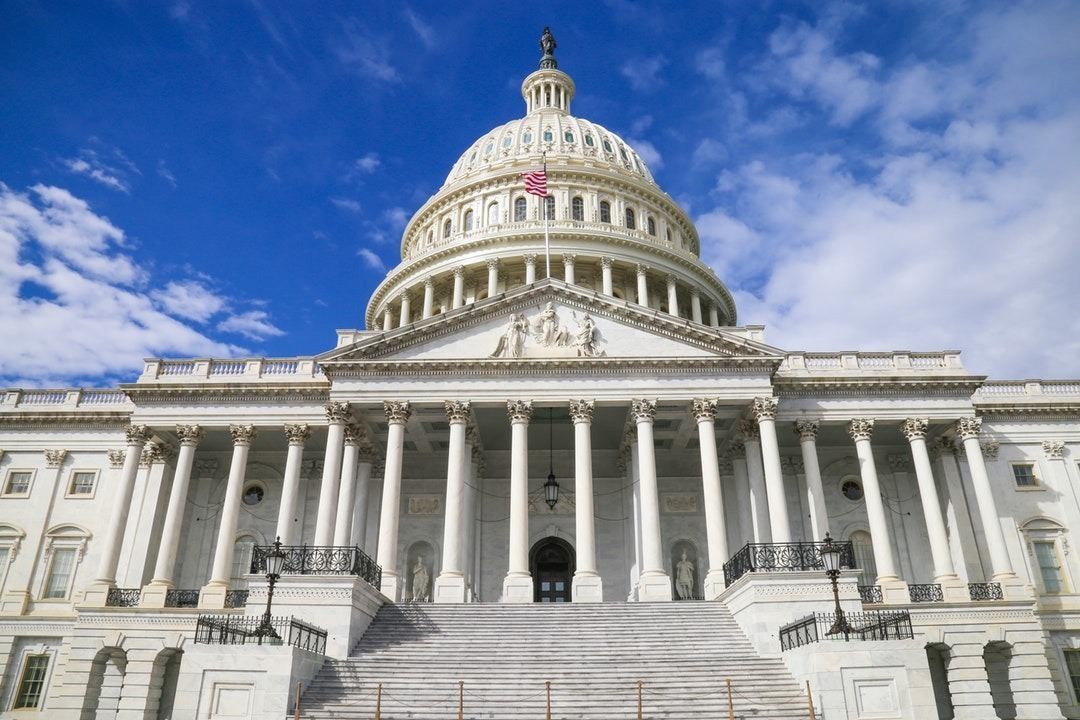A group of internet-based companies outside of the historical champions of Section 230 of the Communications Decency Act have formed a coalition to defend the controversial law.
The group, called Internet Works, includes industry heavyweights eBay, Reddit, Snap, GoDaddy, Pinterest, Dropbox, Etsy, and Wikimedia Foundation. The coalition plans to lobby Congress on the importance of Section 230 protections, the need for a unified and comprehensive approach towards reform, and the dangers of making "blunt changes to the law."
"Internet Works members rely on CDA 230 to make their platforms safe for users and support free expression," the group said in a statement. "This coalition brings new voices and diverse perspectives to Washington's current Section 230 debate, which too often focuses on the largest internet platforms."
Section 230, which is part of the Communications Decency Act of 1996, provides immunity for website publishers from third-party content. The law shields companies like Facebook and Twitter, ranging all the way down to the smallest blogs from liability for what users of those platforms say in comment sections, or similar venues for user expression hosted by the website.
Without the Section 230 protections, third parties could sue a website for something a user writes in the comments section that escapes moderation, or is seen before the comment is moderated. Additionally, users could also sue social media companies like Twitter and Facebook for content users post.
The members include:
- Automattic
- Cloudflare
- Dropbox
- eBay
- Etsy
- Glassdoor
- GoDaddy
- Medium
- Nextdoor
- Patreon
- Snap Inc.
- TripAdvisor
- Vimeo
- Wikimedia Foundation
President Donald Trump has expressed a desire to repeal the article, suggesting it allows companies to censor conservative opinions. In May, after Twitter had flagged the President's tweets with fact checks, he issued an executive order attempting to limit Section 230's legal protections.
During the past week, Trump threatened not to sign the funding and COVID-19 relief bill that includes $600 stimulus checks for Americans, demanding that Congress also repeal Section 230, add $2,000 stimulus checks, and establish an election fraud commission. He eventually signed the bill into law.
President-Elect Joe Biden has also said he wants to revoke article 230. He has historically stated that Facebook and other online giants should be held accountable for spreading misinformation.
On Monday, the House passed a separate bill supporting $2,000 checks, but Senate Majority Leader Mitch McConnell has refused to bring it to the floor for a vote. Instead, he floated a separate bill that would group the higher amount together with Trump's other demands, including the Section 230 repeal. That combination would serve as a "poison pill" for Democrats and will almost certainly fail to pass.
The Internet Works coalition doesn't include online titans Facebook, Google, Twitter, Amazon, or Microsoft. Another group, The Internet Association, which consists of all of those Silicon Valley titans and others, has previously spoken out against attempts to roll back Section 230 protections. Apple isn't part of either group and has not yet publicly commented on Section 230.
 Will Shanklin
Will Shanklin







-m.jpg)






 Christine McKee
Christine McKee
 Charles Martin
Charles Martin
 Mike Wuerthele
Mike Wuerthele
 Marko Zivkovic
Marko Zivkovic
 Malcolm Owen
Malcolm Owen


 William Gallagher
William Gallagher

-m.jpg)






28 Comments
I don’t think 230 should be repealed, nor do I think these social media giants should be able to censor any opinions conservative or progressive, capitalistic or communistic. Let people educate themselves and decide for themselves.
Ironically enough we had to listen to communists, oops I mean progressives, for years tell us everyone has their own personal truth, or some other rubbish like that. Now they want to take that away.
Beware the law of unexpected consequences. When Reagan eliminated the Fairness Doctrine (in place since the beginning of radio) he set the stage not only for Fox News and Rush Limbaugh, but for the News as a profit center—which is why we have the daily murder, rape, and arson shows without the benefit of Walter Cronkite.
The wild part is eliminating Section 230 would ultimately just consolidate power into the hands of already-rich media companies. All the conclusions you can reach via Section 230 can also be reached via the First Amendment, but it will take vastly more money and time to get there. Small sites like this one would have to shut down anything which accepts arbitrary input from users, while sites like Facebook could keep operating while they spend years and millions of dollars on the court case. Then after all that, Facebook would win (after all, they're not a government, so they have freedom of speech, and choosing what you want to publish and what you want to remove is speech), and the smaller sites would have been crushed, so Facebook wins again!